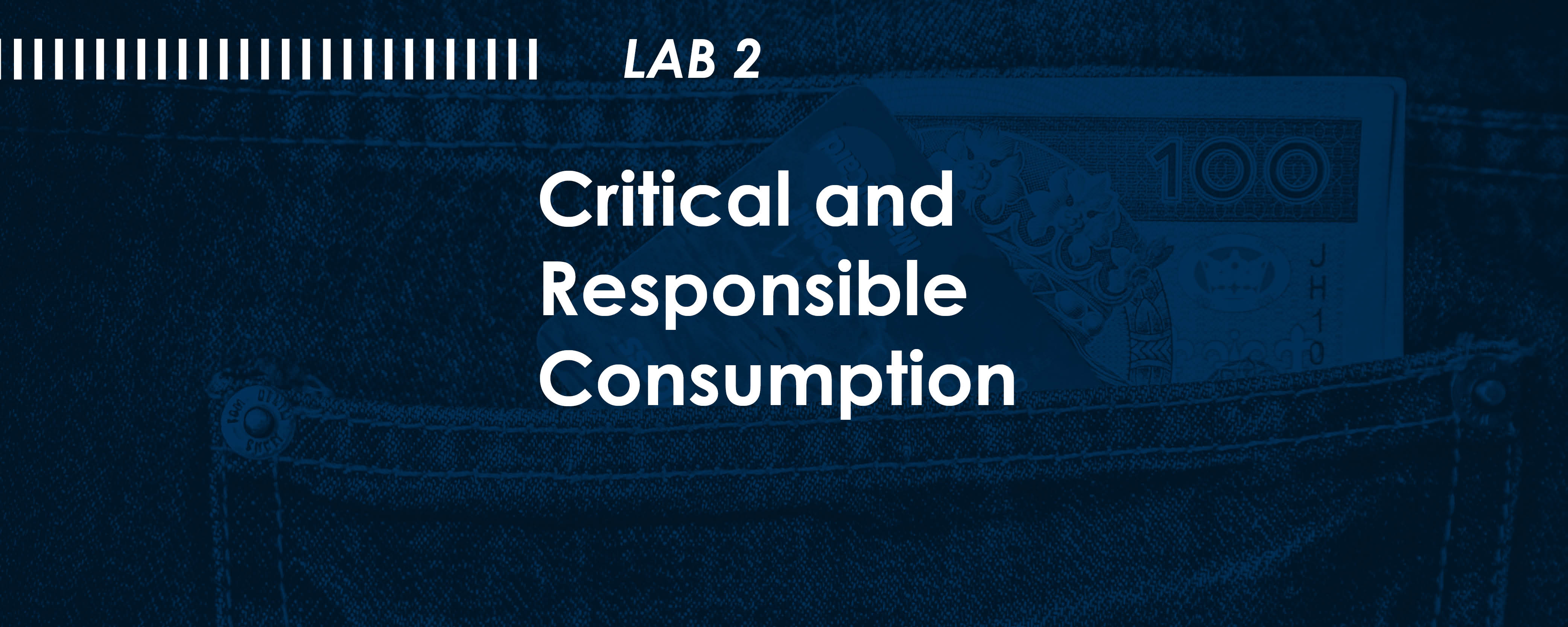Lab 2: Critical and Responsible Consumption

Critical consumption and responsible consumption are approaches to studying the consumption of goods and services in relation to their impact on society and the environment. They are both concerned with examining the societal and ethical contexts that shape, and are shaped by, consumption activities.
Critical consumption interrogates the social, economic, and environmental consequences of marketplace consumption. Consumers are increasingly concerned about both their own consumption choices as well as the nature of choices presented to them on the market. Businesses and markets find it increasingly difficult to avoid addressing the issue of their impact on society and the environment; a critical consumption perspective is equally interested in the societal impact of market offerings, how businesses position their societal roles, and how consumers critically respond to the market.
Responsible consumption focusses on the nature of individual responsibility and ethical behaviour. Responsible consumers are concerned with social and environmental issues, and they try to express this concern through their support of sustainable production and with consumption practices. For example, responsible consumers try to reduce their waste, conserve energy, and choose products made from sustainable materials.
In our research lab, we discuss people’s consumption behaviours with implications for positive societal impacts. While 30% of the world’s produced food is wasted, our current research projects focus on promoting critical and responsible consumption behaviour in society. This include educating schoolchildren about sensible eating behaviour using their own designs; studying the transmission of responsible consumption values from children to parents, from school to household, and within the socio-cultural environment at large.
Lab Lead
Lab members
Recent research projects